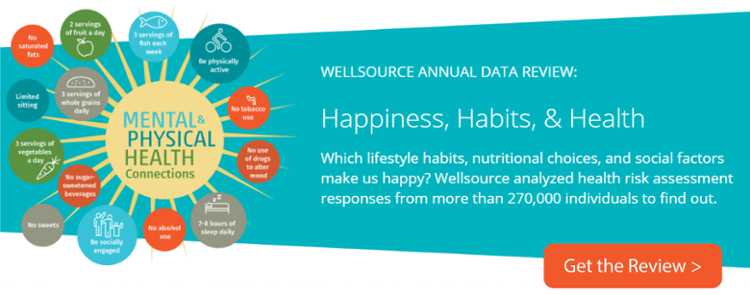As the Director of Marketing at Wellsource, I get to talk to leaders in the world of population health about how their wellness programs make real impacts on people’s lives. Full disclosure: these programs are typically built around the data provided by their health risk assessment (HRA) solution from Wellsource.
These conversations can be just as wide-ranging and complex as the health and wellness field itself and I very rarely have the same conversation twice. Experts in different fields, for example, will have different insights as to what makes up wellness or what the most important aspect of wellness is— and each wellness initiative will rely in part on the data provided by population HRA results.
Many people outside of the health and wellness space, however, are inclined to think of the two terms — heath, and wellness — as one in the same, and typically think of biometric measurements of health in the form of weight, blood pressure, heart rate, etc.
So, when people consider wellness in relation to an HRA they simply think that the HRA is an evaluation of their health and whether or not their high blood pressure could put them at risk for cardiovascular disease. And while that is part of what HRAs do, it’s not the only thing they do. And that’s why we’re in the business we’re in—because we recognize that wellness is more than just the numbers on a medical chart.
In this post, I’m breaking down the ins and outs of wellness and why your population needs to have a clear picture of their entire health situation — not just the measurable data their physician collects. We’ll also explore why it’s important for you to have a handle on the wellness of your population as a whole and how it can impact day-to-day management.
What Is Wellness?
The World Health Organization defines wellness as “a state of complete physical, mental, and social well-being, and not merely the absence of disease or infirmary.” The National Wellness Institute, on the other hand, defines it as “an active process through which people become aware of, and make choices toward, a more successful existence.” In both definitions, it’s clear that while wellness certainly has to do with feeling good, it’s not only about numbers on the scale or blood pressure cuff. This is the aspect that individuals who aren’t as familiar with the health and wellness field often miss out on.
When you’re discussing wellness, it helps to encourage your population to think about it from the perspective of the things people do to “fill their tank.” Things like:
- Are they getting enough sleep?
- Are they living or working in positive, supportive environments?
- Do they tend to feel fulfilled in their day to day endeavors?
- Are they managing stress and anxiety effectively and healthily?
They can bust their butts at the gym and eat all the fruits and veggies in the supermarket, but if they’re capping it off with not enough sleep, too much alcohol, and a stress-level that won’t quit they’re still going to end up in a bad place or—at the very least—extremely run down. While it’s true that those who are eating healthy and exercising regularly may recognize wellness benefits that include improved mental health and better sleep habits, these are things that must also be prioritized independently from workout regimes and diets.
How Does Wellness Affect Overall Population Health?
Unfortunately, the things that make up wellness aren’t necessarily easily quantifiable and can be overlooked until it’s too late. By the time people realize the impact that poor sleep and too much stress are having on their physical health (never mind their mental health!) it might be too late to ward off ailments that could have been prevented. A high-quality HRA can help individuals realize they may be headed down a path that needs adjustment and can provide you with the information needed to create and implement programs and resources to help them achieve their goals.
There are some aspects of wellness that affect population health more than others. If people are perpetually stressed out, exhausted, and under-nourished you’re going to see it play a larger role in their overall health, including those more measurable aspects such as blood pressure and weight. But it isn’t just that it will affect one person.
For example, if a large portion of your population engages in shift work, you may notice that they aren’t getting nearly enough sleep each night and their stress levels are sky-high. This could impact not only their risks of developing chronic illnesses such as diabetes or heart disease but their workplace safety and/or productivity. Similarly, if you work with an older population, HRA results could indicate that while they’re physically in good health, they’re experiencing a decrease in their ability to perform activities of daily living (ADLs).
This could potentially lead to an decrease in mental health that could be proactively mitigated by implementing health and wellness programs and providing resources on things like occupational therapy to assist with maintaining independence longer.
At the end of the day, it’s important to remember that a healthy population is doing much more than simply eating right, exercising, and taking their daily vitamins. Their wellness—that is everything that makes up their emotional and mental well-being in addition to their physical well-being—should be equally cared for. And a reputable HRA can help determine what programs or resources are needed to achieve that goal.
Interested in learning more about the influences of happiness, habits, and health? Wellsource analyzed HRA data from more than 270,000 working adults to better understand the associations between lifestyle habits and mental health. Download the report to see what we found.








